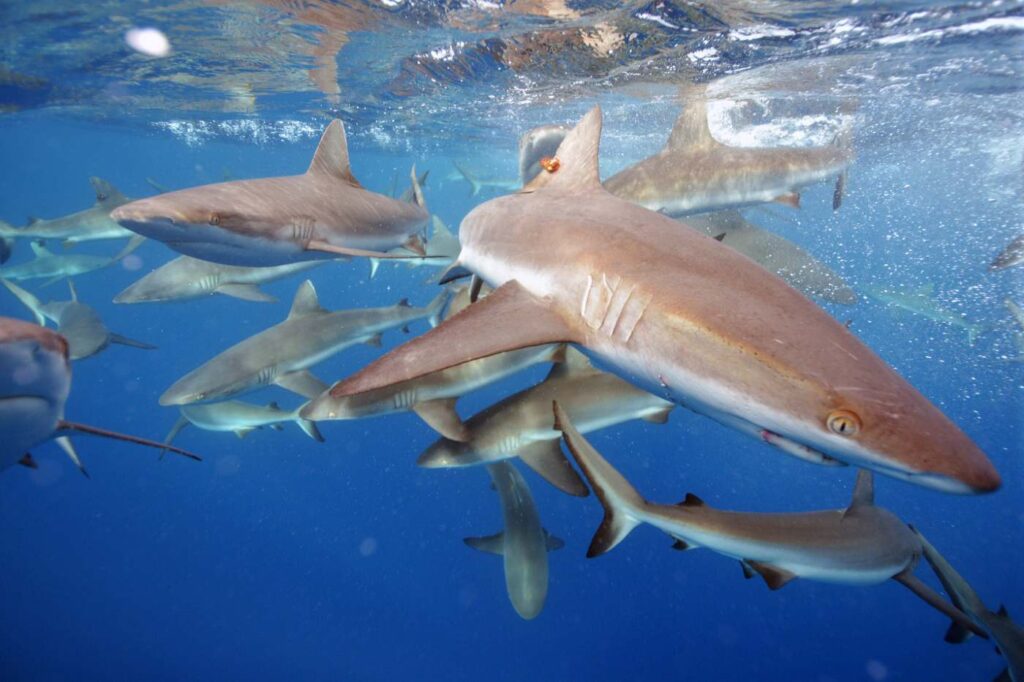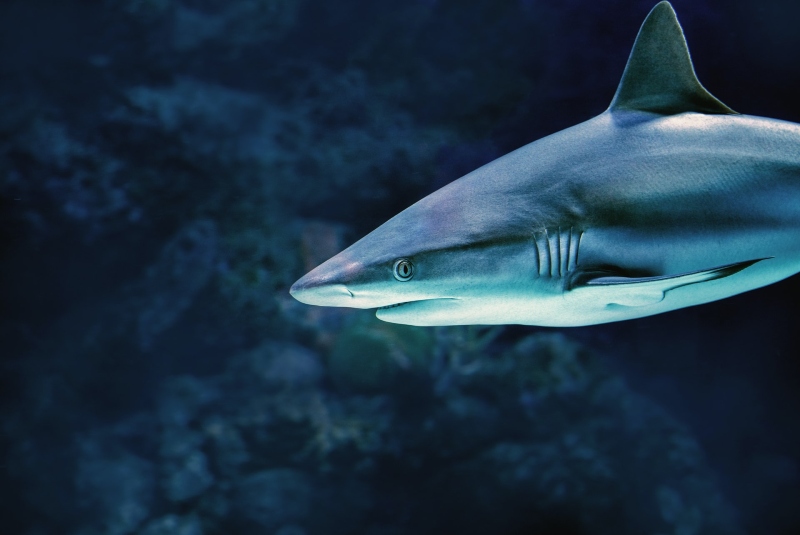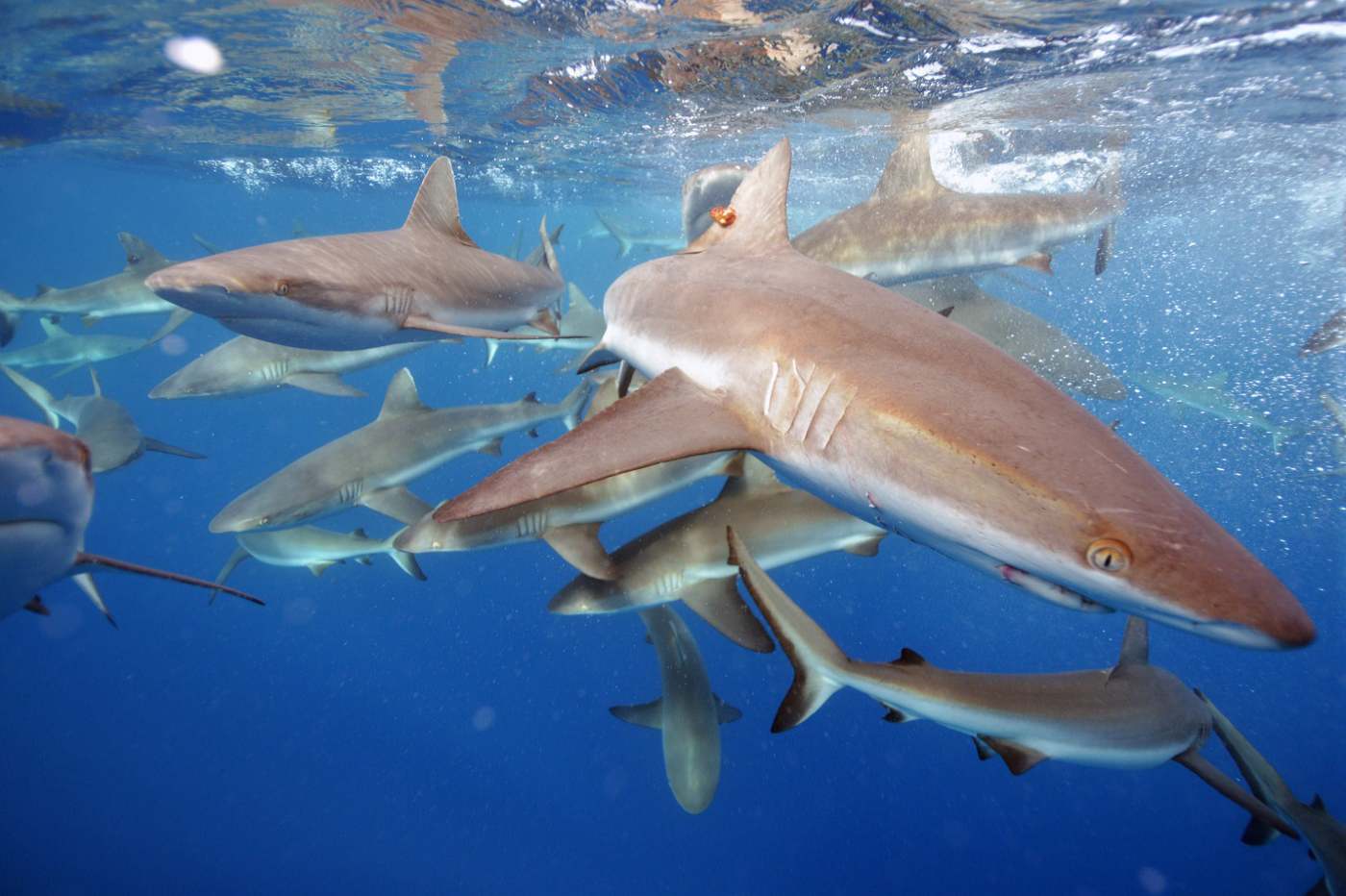A team of Florida scientists have recently discovered that grey reef sharks form long-lasting relationships with each other that straddle the line between friendships and business partners.

“We don’t think of sharks as social animals, but they do have social groups,” says Yannis Papastamatiou, who was involved with the study.
Averaging six feet, or two meters in length, the large-eyed sharks of the Pacific and Indian oceans may be aggressive nocturnal predators, but apparently they have a soft side.
Scientists found that the social groups of the sharks were remarkably stable, with the same individuals remaining in their cliques of around 20 animals for years—while rarely ever switching associations despite the presence of almost 8,000 sharks which frequented the reefs surrounding the atoll.
RELATED: Scientists ‘Blown Away’ By Discovery of Longest Animal Ever Recorded—And It’s Quite Beautiful
Around the Palmyra Atoll, a remote island 1,000 miles from Hawaii, researchers from Florida International University in Miami, tagged 41 grey reef sharks with acoustic transmitters that emit a unique sound picked up by a perimeter of receiving devices stationed around the island.
For four years, anytime a tagged shark would come within 300 meters of the receivers, their identity would be logged in a database.
Their findings were published this week in Proceedings of the Royal Society B.
The remarkable discovery leaves many questions unanswered, for example how the sharks identify each other, and what the purpose of their social groups are.
The Mafia Of The Sharks

They is no proof that the sharks have any emotional bond with each other, so Papastamatiou, speaking with the New Scientist, was unsurprisingly reluctant to refer to the sharks as friends.
He and his colleagues opted to call them “associates,” which is maybe a little more mafioso, but considering how grey reef sharks often use their aggression to bully larger sharks, maybe it’s for the best.
MORE SHARK NEWS: Watch a Family of Divers Rescue a Whale Shark With Rope Wrapped Around Its Body
One hypothesis as to the purpose of these “associations” is that they are loosely organized hunting units. Since the sharks hunt at night beyond the reach of the receivers, there wasn’t any evidence that deliberate cooperation was occurring in the dark ocean beyond the view of the research team’s devices.
However, it may be a sort of poaching strategy, whereby if the shark to attack first loses out, his “associates” have an opportunity to follow up. This might even-out the success rate for all the members of a group over a long enough time span, increasing their overall survival rate.
This discovery makes grey reef sharks one fascinating fish. They display a collection of highly unusual behaviors in the shark world, including performing threat displays, and now, as scientists have just found out, social congregation.
LOOK: Man Strikes Up Friendship With Owl Family After They Discover Mutual Love of Television
SHARE This Unusual Discovery Of Long-Lasting Shark Bonds With Your Social Media Friends…




















